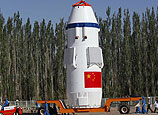
INDIAN WELLS, UNITED STATES, June 8 (Xinhua) -- During their first summit, Chinese President Xi Jinping and his U.S. counterpart Barrack Obama increased mutual trust, reached consensus on an array of issues and mapped out a blueprint for China-U.S. ties, and these achievements signal the opening of a new chapter in cooperation across the Pacific Ocean, Chinese State Councilor Yang Jiechi said Saturday.
During the June 7-8 summit, the two leaders have had over eight hours of talks, covering a wide range of topics such as the two countries' respective domestic situation and governance, bilateral issues as well as global ones, said Yang.
They discussed cooperation but never shied away from differences, Yang said, adding that both the length and the depth of the two leaders' interaction this time were unprecedented, showcasing the great importance the two sides have attached to their relationship.
The state councilor said the two leaders agreed to make joint efforts for achieving pragmatic outcomes at the next meetings of the China-U.S. Strategic and Economic Dialogue as well as the high-level China-U.S. Consultation on People-to-People Exchange scheduled for this summer.
Chinese foreign and defense ministers will visit the United States at the invitations of the U.S. side at appropriate times, according to Yang.
China, at the invitation of the United States, will also attend the U.S.-hosted Rim of the Pacific exercises (RIMPAC) in 2014, he said.
CONSTRUCTION OF NEW TYPE RELATIONS
During the summit, Xi summarized the concept of new type relations between the two nations in three phrases -- "no conflict and no confrontation," "mutual respect" and "cooperation toward win-win results," said Yang.
Xi also put forward a four-point proposal for building a new type of relations between the two countries.
First of all, the two sides need to elevate the level of dialogue and mutual trust and institutionalize the meetings between leaders of the two nations at multilateral venues such as the Group of 20 and the Asian Pacific Economic Cooperation forum, while making good use of the existing over 90 dialogue and communication mechanisms between the two governments.
Secondly, to open a new horizon for pragmatic cooperation, Washington should take active steps to relax restrictions on hi-tech exports to China and improve the bilateral trade and investment structures toward a more balanced future.
Thirdly, to create a new mode of interaction between major countries, the two sides need to maintain close coordination and collaboration on the Korean Peninsula, Afghanistan and other global hotspot issues, and work more closely on issues such as crackdown on piracy and transnational crimes, peacekeeping tasks, disaster relief, cyber security, climate change and space security.
Last, the two sides need to find a new way to manage their difference and actively foster a new type of military relations in accordance with the new type of inter-power ties.
According to Yang, Obama responded actively to the proposal, saying that the U.S. side placed high importance on its relations with China and is willing to construct a new state-to-state cooperation modal with China based on mutual benefit and mutual respect, so as to jointly meet various global challenges.




















![]()
